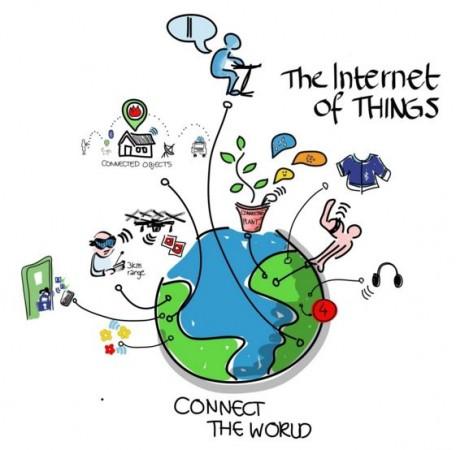
Smart homes or Internet of Things (IoT) are not entirely new. They've been around for years, but 2016 at least made people aware of what this new technology category holds in a consumer-friendly way. Is making smart homes the topic of discussion enough to get this niche category into the mainstream? Clearly not.
In this article, we are going to look into what the upcoming year of 2017 holds for smart homes, its challenges and opportunities. Above all, there are a few companies (we call them smart home pros) that you need to watch out if you are serious about automating your entire house in the future.
Read: How safe is your smart home? 4 best devices that will shield your house against hackers
Let's start by what went wrong in 2016 and why smart homes never really clicked.
There have been a lot of studies from industry experts suggesting a major breakthrough in smart homes sector in the coming years. Experts have forecasted that there will be 50 billion connected objects by 2020, translating to a market valued in trillions of dollars.
Well, there's a lot of money in this category and we are certainly not surprised to see major players like Google, Amazon, Apple and Microsoft stepping into the race. But a lot of startups have shown impressive products that change the way we work and live.
Everything from your sprinklers to ACs, and curtains to doors can be automated, but the complexity and the price factor has made smart homes more of a luxury for tech savvy folks than a necessity for regular consumers. In a nutshell, the IoT needs simplification and affordability to really crack the barrier and hit the mainstream.
Well, let's not lose hope just yet. Who thought smartphones would become so common a few years ago, but thinking about lives without smartphones is nearly impossible. Smart homes, too, might be getting to that point where people will adopt the technology on a larger scale, only at a slower pace.
There are a lot of players in the smart homes arena and it is only a matter of time before the stringent competition to reach out to consumers strikes in. Until then, below are some of the most important smart home companies that you need to follow in 2017.
Amazon
Amazon has already entered the smart homes market in a big way. The company's Echo and Echo Dot products are more realistic, easy to setup and most of all affordable. It looks like Amazon is among the front-runners of the smart home racers and 2017 might hold some big surprises too. We just have to wait and watch.
Microsoft
With Apple, Google, Samsung and other big players exploring the relatively niche category, Microsoft thought it would be wise to make its pitch. AI, short for artificial intelligence, makes smart home devices smarter in a smart way, and Microsoft has its Cortana to make it big.
The Redmond-based software titan's debut in the smart home arena will be huge as it plans to make automated, intelligent and accessible smart homes by integrating its AI into any smart home device. To serve as a base platform, the company will use its own PCs and Windows smartphones, which is a major part of any household, to control other smart devices. Smart move Microsoft!
Google has been in this race longer than any other company and it has everything it needs at its disposal. Google Home is a direct competition to Amazon Echo and the Google Assistant makes it go a long way. Google has the potential to do a lot more than any of the other companies, so we are hoping to see the company try something new in 2017.
IFTTT
A startup based in San Francisco made a difference in the IoT world with its simple concept of connecting services based on trigger and action basis. Well, you know where the name of the company comes from for IFTTT, which is short for If This Then That.
The startup recently launched IFTTT partner program and is on its way to bring as many third-party companies on board as possible, so it can use its platform to connect their devices under a single network. Now, that's a smart home solution we are anticipating to transform the industry.
Nest
We cannot conclude our talk about smart homes without mentioning Nest – a prominent player in this category. The company offers series of smart home products such as security cameras, thermostats and smoke alarms to fulfill basic consumer needs in a smart way. We would love to see Nest bring new products to expand its portfolio in 2017.

















